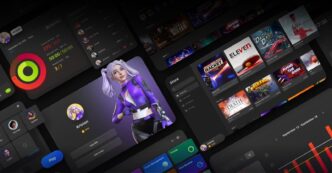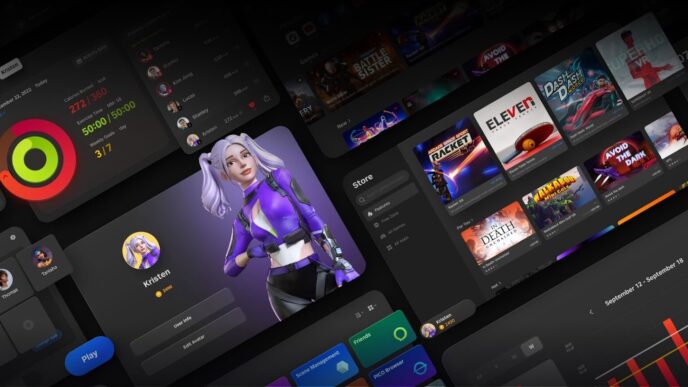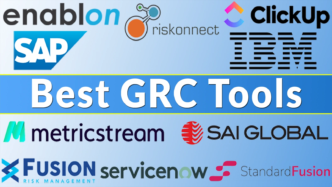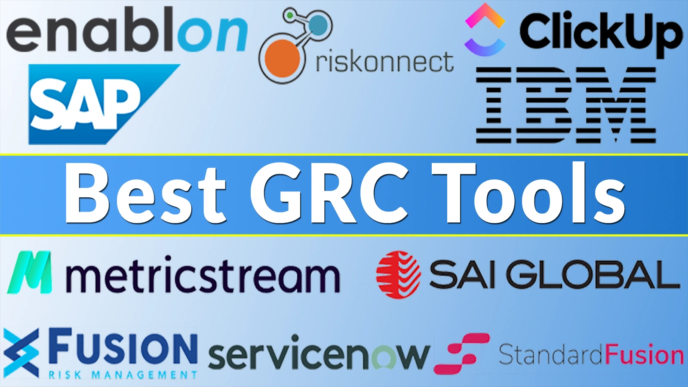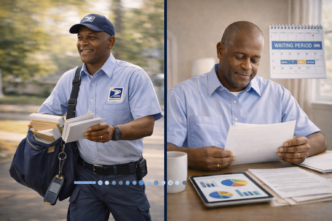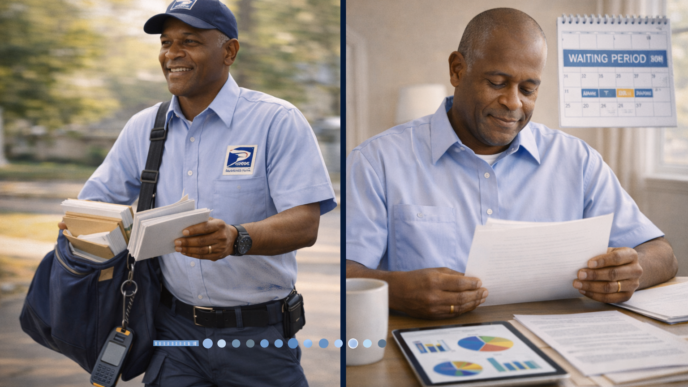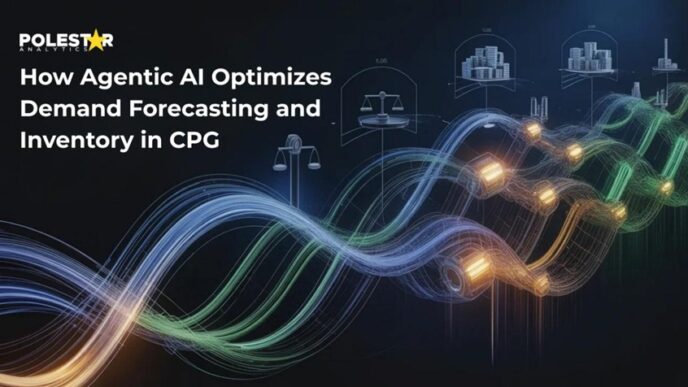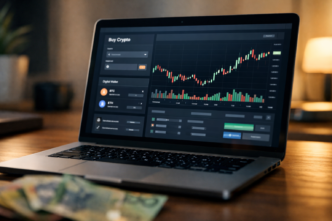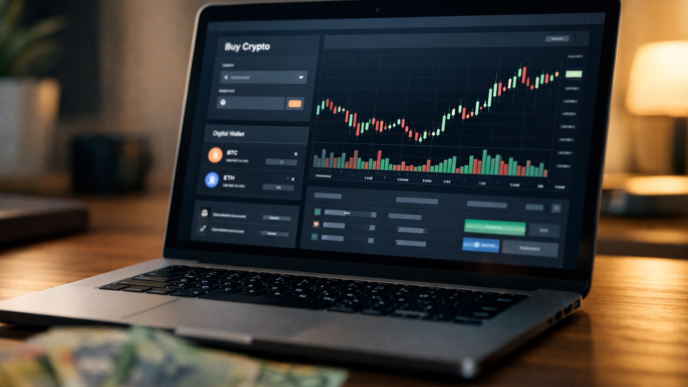San Francisco. It’s a name that always pops up when you talk about tech. And honestly, it’s no surprise. This city is a hub for some seriously smart people building cool stuff. We’re talking about companies that are changing how we live, work, and play. So, what’s new and exciting in 2025? I took a look around to see which San Francisco tech companies are really making waves. It’s a mix of big names doing even bigger things and some newer players you’ll want to keep an eye on.
Key Takeaways
- OpenAI continues to push the boundaries of AI, with tools like ChatGPT becoming more integrated into daily life and new video generation tech on the horizon.
- Waymo is making self-driving cars a reality, operating fully driverless services in several cities and expanding its reach.
- Anthropic is focusing on creating AI that is ethical and safe, with its AI assistant Claude gaining traction.
- New electric vehicle companies like Rivian, Lucid, and Canoo are challenging established players with innovative designs and offerings.
- Companies like Faire and Grail are using technology to disrupt traditional industries, from retail to healthcare, with innovative solutions.
1. OpenAI – Leading The AI Revolution
OpenAI is really making waves in the artificial intelligence world, and it’s hard to ignore what they’re doing. They’ve moved beyond just research and are now putting out tools that people can actually use every day. Think about ChatGPT – it’s not just a novelty anymore. It’s showing up in schools, helping doctors, and even changing how journalists write stories. It feels like AI is becoming a part of everything.
And then there’s Sora, their new video generation tool. You type in a description, and it creates a video. It sounds like science fiction, but it’s real, and it’s going to change how we make ads, movies, and online courses. Lots of smaller companies are building their whole businesses just by using OpenAI’s technology. It’s clear that AI isn’t just a passing trend; it’s the groundwork for how we’ll interact with technology going forward. This shift towards practical applications was highlighted in their October event, signaling a new era for the company’s offerings.
It’s pretty wild to think about how fast things are changing. What was cutting-edge a year ago is almost standard now. OpenAI is definitely at the forefront of this, pushing the boundaries of what AI can do and how it can help us.
2. Waymo – Self-Driving Cars Go Mainstream
Remember when self-driving cars felt like something out of a sci-fi movie? Well, in 2025, they’re starting to feel pretty normal, and Waymo is a big reason why. This company, a part of Google, is already running fully driverless taxi services in places like Phoenix, San Francisco, and Los Angeles. You can actually hail a Waymo car, hop in, and go wherever you need to without a human behind the wheel. It’s pretty wild when you think about it.
These aren’t just basic cars; they’re designed to be comfortable and useful. Think of them as your own little mobile space. Waymo is working with cities too, trying to expand where their cars can go and how often they can operate. The idea is to make getting around safer, smarter, and maybe even a bit better for the environment.
Here’s a quick look at what makes Waymo stand out:
- Fully Driverless Operations: They’re actively picking up and dropping off passengers without anyone in the driver’s seat.
- Expansion Efforts: Waymo is actively partnering with local governments to grow their service areas.
- Focus on Safety and Experience: The vehicles are built with passenger comfort and safety as top priorities.
The future of transportation is here, and it’s driving itself.
3. Anthropic – Building Safer AI
You know how sometimes AI feels a little… unpredictable? Like it might say something weird or go off the rails? Well, Anthropic is a company that’s really trying to fix that. They were started by some folks who used to work at OpenAI, and their main goal is to build AI that’s not just smart, but also safe and easy to understand.
Their AI assistant, named Claude, is becoming a go-to choice for businesses in areas like banking and healthcare, kind of like a more cautious alternative to other big AI models. It’s pretty impressive how much trust they’ve built up.
Anthropic has managed to get over $7 billion in funding from major players like Google and Amazon, which really shows how much people believe in their approach. They’re all about being open about how their AI works and making sure it stays aligned with what humans want in the long run. It feels like they’re trying to build AI with a conscience, which is something we definitely need more of these days.
4. Rivian, Lucid, Canoo – The New EV Champions
While Tesla has been around for a while, a new wave of electric vehicle (EV) companies is really making its mark. These aren’t just trying to copy what’s already out there; they’re bringing fresh ideas to the table.
Take Rivian, for example. They’re building these really cool, powerful electric trucks and vans. You’ve probably seen some of their delivery vans already, especially if you’ve ordered from Amazon lately. They’re focused on practical vehicles that can handle tough jobs, but with that futuristic EV feel.
Then there’s Lucid. They’re aiming for the luxury market, going head-to-head with Tesla’s high-end models. Their cars are all about sleek design and top-tier performance, trying to prove that electric can be both eco-friendly and incredibly fancy.
And don’t forget Canoo. Their approach is a bit different. They’re designing these modular, almost van-like vehicles that seem perfect for city life and delivery services. Think of them as adaptable electric pods that can be configured for different needs, making urban transport more flexible.
These companies, along with others, are showing that the EV space is getting crowded and competitive. They’re not just selling cars; they’re selling a vision for the future of transportation, one that’s cleaner, smarter, and maybe even a little more exciting than what we’ve had before. It’s a big shift, and it’s happening right here in California.
5. Neuralink – Merging Minds With Machines

Okay, so Neuralink. This is the company Elon Musk started, and it’s all about connecting our brains directly to computers. They actually implanted their first device into a human this year, 2025, which is a pretty huge step. The main idea right now is to help people who can’t move certain body parts, like those with paralysis, to control computers just by thinking.
It sounds like something out of a sci-fi movie, right? But they’re serious about it. The long-term goals are even wilder: imagine boosting memory, finding new ways to treat brain problems, or even, and this is a big ‘even’, letting people communicate directly brain-to-brain. It’s definitely a bit controversial, and there are a lot of ethical questions to sort through, but you can’t deny the progress they’re making. They’re working closely with places like UCSF and Stanford to push this forward.
Here’s a quick look at what they’re aiming for:
- Helping people with paralysis: Allowing them to control devices with their thoughts.
- Treating neurological conditions: Developing new ways to manage diseases affecting the brain.
- Cognitive enhancement: Exploring possibilities for improving memory and other mental functions.
- Brain-to-brain communication: A far-off goal, but part of their vision.
It really feels like the line between what’s possible in science and what we used to only see in movies is getting seriously blurred with companies like Neuralink.
6. Faire – Disrupting Retail From The Inside
Faire is doing something pretty neat for small businesses and independent makers. Think of it like a wholesale marketplace, but way more modern and tech-driven. It connects creators with shops that want to stock their goods. It’s not just about listing products; Faire uses technology to help these smaller players compete.
They’re essentially building a digital infrastructure that makes it easier for local shops and artisans to find each other and do business.
Here’s a quick look at what they’re doing:
- Connecting Makers and Shops: They’ve got a huge network. Over 100,000 makers are using the platform to sell their creations, and more than 700,000 shops around the world are looking for new products. It’s a big ecosystem.
- Smart Tools for Business: Faire isn’t just a directory. They’re using AI to help businesses out. This includes predicting what kinds of products will sell well, helping shops manage their inventory so they don’t run out of popular items, and even suggesting new products that buyers might like.
- Global Reach for Local Businesses: For a small shop owner, getting their products out there can be tough. Faire is making it simpler for them to reach customers far beyond their local area, helping them grow without needing a massive marketing budget.
In 2025, Faire is really focused on giving the little guys a better shot in today’s market. It’s about making wholesale buying and selling more accessible and efficient for everyone involved.
7. Grail – Early Cancer Detection Through A Simple Blood Test
It feels like every other week there’s a new breakthrough in medicine, and honestly, it’s hard to keep up. But some of these advancements are just too big to ignore. Grail is one of those companies. They’re working on something pretty incredible: a blood test that can spot a bunch of different cancers before you even feel sick.
Think about it – most cancer screenings are specific to one type of cancer, and often, you have to wait until symptoms show up. Grail’s approach is different. Their test looks for signals from multiple cancer types, including some that don’t have existing screening methods. This could really change the game for how we approach cancer care.
Here’s a quick look at what makes their work so significant:
- Broad Screening: The test is designed to detect cancer signals from many different types of cancer, not just one.
- Early Detection: The goal is to find cancer at its earliest stages, when treatment is often most effective.
- Accessibility: A simple blood draw is far less invasive than many current diagnostic procedures.
They’re rolling this out in clinics, and it’s a big step forward. It’s still early days for widespread adoption, but the potential for this kind of early detection is huge. Imagine catching cancer when it’s just a few cells – that’s the dream, right? You can find out more about this type of multi-cancer early detection on their website.
It’s not just about finding cancer; it’s about finding it sooner, making treatment more manageable, and hopefully, saving more lives. This kind of innovation is exactly why San Francisco continues to be a hub for groundbreaking health tech.
8. Duolingo AI, Khan Academy & Perplexity – The Future Of Learning
It feels like every day there’s a new way technology is changing how we learn, and San Francisco is right at the center of it. This year, a few big names are really pushing the boundaries in education technology, or EdTech as folks call it.
First up, Duolingo AI is making language learning way more personal. Instead of just going through the same lessons, their AI figures out what you struggle with and adjusts things just for you. It’s like having a tutor who knows exactly what you need.
Then there’s Khan Academy, which has rolled out a new AI tutor. Think of it like a super-smart assistant that can explain really tough subjects, almost like a real teacher would. This could be a game-changer for students trying to get their heads around complex topics. We’re seeing a lot of investment in these kinds of tools, and the Top 100 Tools for Learning 2025 report even highlighted Gemini as a new addition, showing how fast things are moving.
And don’t forget Perplexity AI. It’s not your typical search engine; it gives you direct answers to your questions, which is a dream for anyone doing research or just trying to find information quickly. It cuts out a lot of the noise you usually get.
These platforms are making education more accessible and, honestly, a lot more interesting. It’s pretty cool to see how AI is helping people learn in ways that just weren’t possible a few years ago. The goal seems to be making learning fit around our lives, not the other way around.
9. Sana Health – A Wearable For Stress, Sleep & Pain
You know how sometimes you just can’t seem to switch off your brain? Whether it’s worrying about work, tossing and turning all night, or just feeling that constant ache, it really takes a toll. Well, Sana Health is trying to tackle that head-on with some pretty interesting tech.
They’ve developed a smart sleep mask, which sounds a bit futuristic, right? But it’s not just about blocking out light. This mask uses gentle light and sound patterns designed to actually influence your brain activity. The idea is to help calm things down, making it easier to deal with stress, get better sleep, and even ease chronic pain. It’s like a tech-assisted meditation, but it does a lot of the heavy lifting for you.
Right now, it’s being used in some clinics, but Sana Health is also bringing it to the consumer market. It’s a drug-free, non-invasive approach, which is a big deal for a lot of people looking for alternatives. Think about it:
- Reducing Anxiety: The light and sound cues can help quiet a racing mind.
- Improving Sleep Quality: By guiding your brainwaves, it aims to promote deeper, more restful sleep.
- Managing Pain: Some users report a reduction in discomfort when using the device.
It’s still early days for widespread adoption, but the potential for a wearable that actively helps manage these common issues without medication is pretty significant. It’s a fascinating look at how technology might help us feel better, day in and day out.
10. Planet Labs – Imaging The Earth In Real Time

You know how we’re always looking up at the sky? Well, Planet Labs is looking back down at Earth, and they’re doing it every single day. They launch these tiny satellites, way smaller than you might imagine, and they’re constantly snapping pictures of our whole planet. It’s pretty wild when you think about it.
This isn’t just for cool space photos, though. This constant stream of images is actually super useful for a bunch of things. Think about tracking climate change, figuring out how crops are doing in different regions, or even helping out when a natural disaster strikes. They’re also using it to keep an eye on supply chains, which is becoming more important than ever.
What’s really changing the game in 2025 is how they’re making this data available. They’ve got this system where developers can get real-time Earth imagery right through an API. Plus, they’re adding AI tools to make sense of all that data. It’s like they’re turning the entire planet into a live data feed. The sky is no longer the limit; it’s the data source. It really feels like they’re putting space to work for us down here.
What’s Next for San Francisco Tech?
So, looking ahead, it’s clear that San Francisco’s tech scene isn’t slowing down. We’re seeing a big push with AI, new ideas in electric cars, and even ways to help us understand our health better. It feels like the companies we talked about are really trying to build things that matter, not just chase the next big trend. The innovation here is still going strong, but it seems like there’s a bit more thought going into how these new technologies will actually help people and the planet. It’s going to be interesting to see what comes out next.
Frequently Asked Questions
What is Silicon Valley and why is it important for tech?
Silicon Valley is a region in California famous for being the main place where many big tech companies started and where lots of new tech ideas are developed. It’s like the world’s top spot for creating new technology and startups.
Which companies are leading the AI race in 2025?
Companies like OpenAI, known for ChatGPT and video creation tools, and Anthropic, which focuses on making AI safe and trustworthy with its Claude assistant, are at the forefront of AI innovation. These companies are changing how we use technology every day.
Are self-driving cars a reality in 2025?
Yes, companies like Waymo are making self-driving cars a reality. They are already offering driverless taxi services in several cities, making transportation safer and more convenient.
What’s new in the electric vehicle (EV) market?
Besides Tesla, new EV makers like Rivian (electric trucks), Lucid (luxury EVs), and Canoo (city-friendly EVs) are making waves. They are making electric cars more diverse and accessible for different needs.
How is technology changing education?
Tech companies are making learning better. Duolingo uses AI to personalize language lessons, Khan Academy has an AI tutor to explain tough subjects, and Perplexity AI offers clear answers to research questions, making education more engaging and easier to access.
Are there tech companies focused on health and wellness?
Absolutely! Companies like Grail are developing simple blood tests for early cancer detection, and Sana Health offers a wearable device to help manage stress, sleep, and pain using light and sound. These innovations aim to improve our health in new ways.



